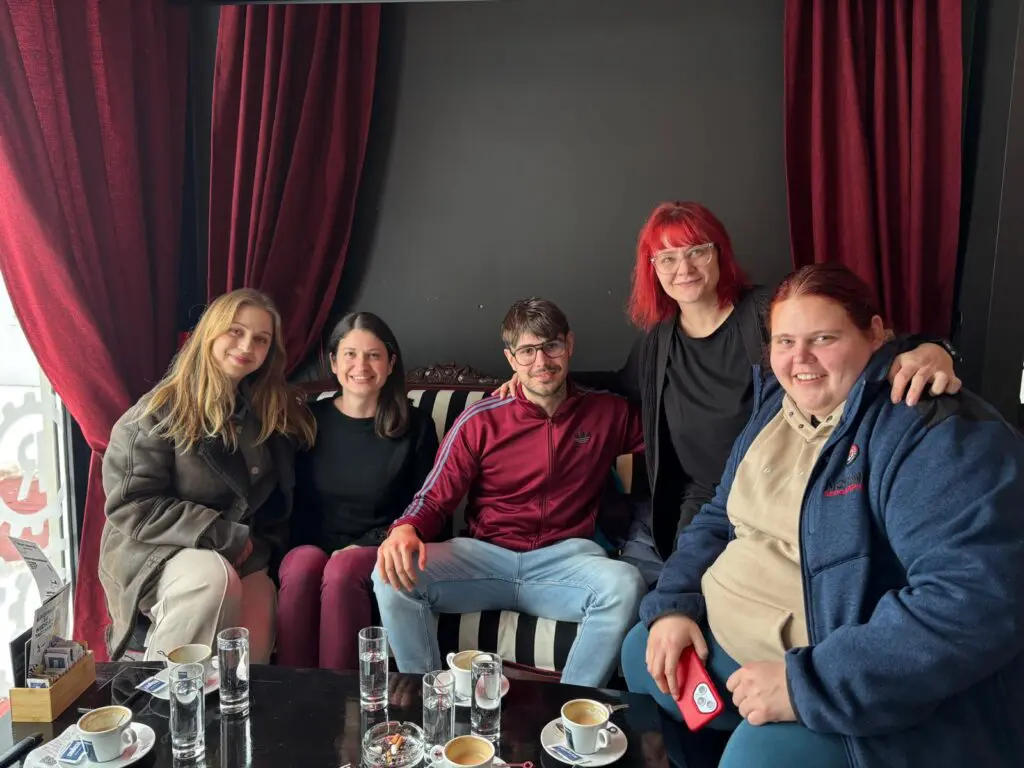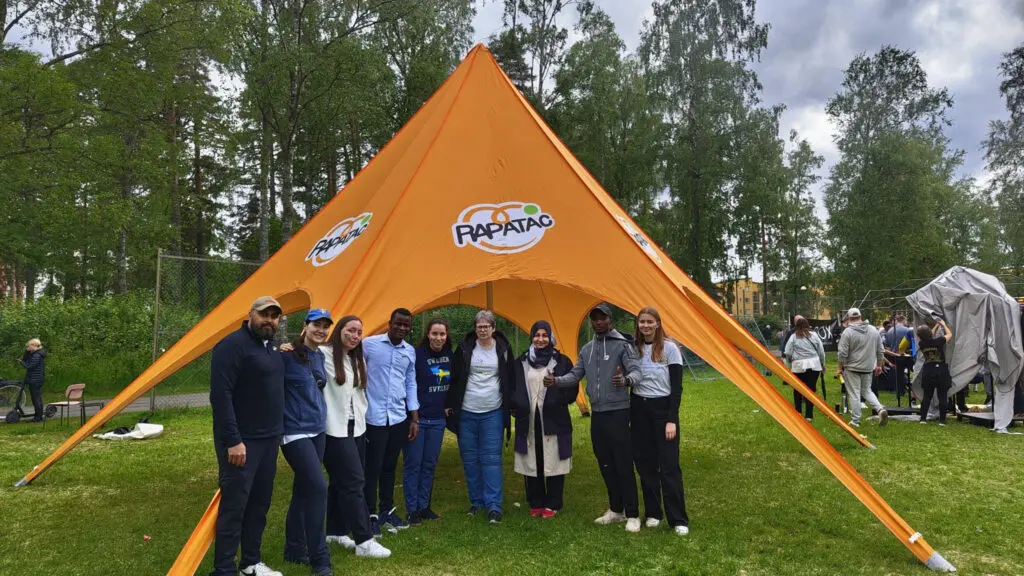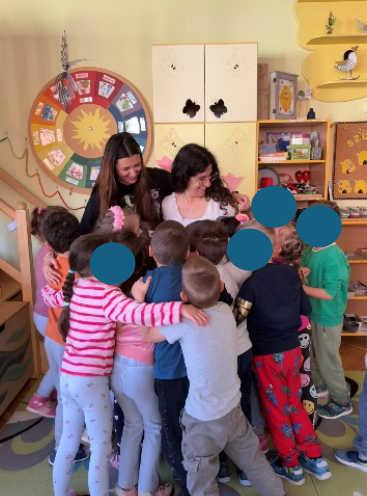Sheltered Workshop and Assisted Living for the Disabled
Start of the Project: September 2015, duration 12 months
Description of the organisation
The «Lebenshilfe in the County of Rottweil gGmbH» conducts exemplary integration and support for mentally, physically or severely disabled people through manifold and ambitious employment opportunities and individual caregiving and therapeutical assistance. The organisation is supported by the local «Lebenshilfe» associations of Rottweil, Schramberg and Oberndorf.
At various locations in Rottweil and Schramberg the organisation provides assistance, vocational training and employment for disabled people.
Above all it runs sheltered workshops as well as accommodation and complementary services for disabled people. These multiform services provide support and assistance for integration and personal development of disabled people. According to our self-conception we try to satisfy the demands and to extend continiously our services.
Special needs
The teaching staff of the assistance and special needs department are qualified specialists in Social or Therapeutic Pedagogy and apart from their theoretical knowledge they are experienced in practice. According to requirements of disadvantaged volunteers they will develop and carry out an individual concept for reinforced mentorship.
Volunteers with special needs could be accepted after consultation with the hosting as well as sending organisation to find and to agree appropriate opportunities of voluntary activities. According to the nature of disadvantages a preparatory visit will be planned.
Motivation and EVS experience
The Lebenshilfe in the County of Rottweil collaborates in care for the handicapped people a fairly long time with voluntarily working people. Apart from participants in the german Voluntary Social Year program and conscientious objectors this includes relatives of residents and citizens from Rottweil and its surroundings, who get voluntarily involved in the social care of young and handicapped people.
By hosting young people from abroad we want to provide insight in our work with young and handicapped people and to convey a comprehensive understanding for the relevance of voluntary work for the civil society.
Project environment
To encourage individuality and self-determination – to facilitate involvement in society
It’s our aim to integrate mentally and severely disabled adults in employment and society. For this we provide a multifold and differentiated tender of facilities and services.
Vocational training
The department of vocational training offers 20 places for occupational qualification. The course of action takes normally 2 years and is divided in basic course and advanced training course with a duration of 1 year each.
Working department
The aim is preparation for work and placement in our sheltered workshops or on the external job market.
The sheltered workshops in Rottweil and Waldmössingen provide 165 workplaces for disabled persons. The workplace design takes in consideration the special needs of disabled persons as far as possible.
Vocational and personal qualification as well as maintenance and development of physical capacities are supporting pillars of our work. Therefor we offer of a variety of pedagogical, therapeutical and caregiving measures.
Latest structural and technical equipment manifold fields of work and interesting potential earnings for disabled people.
Vocational Training / Employment promotion
Learning is a continuing process and never finished. Therefore we provide further training to enable vocational qualification through training courses and individual schooling. Thereby we contribute to personality development as well.
Living facilities
For social integration the Lebenshilfe in the County of Rottweil provide disabled people who can not self-support with a differentiated accommodation service.
Stationary living
The Lebenshilfe provides places for living in residential homes in Rottweil and Schramberg. The daily life is structured by employment in the sheltered workshop.
Assisted living
Complementary to stationary living the Lebenshilfe provides asstisted living groups for disabled persons. There are different possibilities:
• Assisted living for adult persons (individually or collective)
• Assisted living in host families
Assistance and support of disabled persons and host families is assured by qualified staff.
Additional support
In addition to work and living facilities the Lebenshilfe provides relieve services for families: counselling of relatives, services to unburden families, leisure time facilities etc.
European Volunteers are expected to keep the rules of our work with handicapped people:
• acceptance of handicapped people in their particular personality
• ability to cope with strain by challenging behaviour
• full cooperation with staff members
• loyal and responsible acting according to the particular objective of our work
• to be motivated to develop future prospects for handicapped people
• to be courageous to act creative and flexible
Location
Schramberg is a town in the district of Rottweil, in Baden-Württemberg, Germany. It is situated in the eastern Black Forest, 18 km northwest of Rottweil. With all its districts it has about 22,000 inhabitants.
Embedded in five valleys and surrounded by three picturesque castles the center of this friendly Black Forest town is situated. Schramberg is characterized by the history of the clock production. Witnesses of this epoch are historical buildings and a whole department in the Municipal Museum is dedicated to the clocks and watches. The Diesel Museum is housed in the former Hamburg-American watch factory and indicates the innovative power of this time.
Nowadays the “valley town” offers to the visitor the perfect ambience to arrange ones vacation as best as possible. The spacious pedestrian precinct attracts the guest with its many specialized shops and restaurants. One can make use of the rich cultural offer comprising concerts (e.g. with the unique Walcker organ), exhibitions or theatre performances and last but not least the Fasnet (carnival) culminating in the Da-Bach-na-Fahrt procession on the Monday before Lent.
One will find most sports and recreational facilities on the hill in the quarter of Sulgen, the majority of them within walking distance from the holiday village situated there as well.
From Sulgen one can (e.g. by bicycle) easily make minor excursions, e.g. to Heiligenbronn with its monastery or to the minigolf playing field of Schönbronn. As a meeting place of families, both natives and visitors like Waldmössingen with its zoological preserve, its Roman fort and its generously designed playground.
A well developed bus traffic system offers at regular intervals connections to the district capital Rottweil and the train stations at Villingem-Schwenningen, Offenburg and Stuttgart.
To ensure regional mobility volunteers get a monthly ticket which is valid for all public transport associations of the administrative district of Rottweil.
Proposed activities for EVS volunteers
Learning opportunities:
During their activities volunteers will learn about social and emotional necessities of disabled people.
Volunteers will gain competences in social care for disabled people.
Having sole responsibility for design and realisation of leisure facilities will enhance self-assurance and self-confidence of volunteers.
Integration in a foreign culture and the self-determined life of the local community will afford volunteers a personal orientation and increase the development of future perspectives.
Participation in internal professional development activities will provide volunteers with specialised knowledge of the health care and nursery system.
Volunteers can take part in a language training for European Volunteers arranged by the coordinating organisation. The aim of the language training is the command of oral every day speech with a special focus on the terminology of social care. Through language training the volunteer should be enabled to manage typical situations of daily life they will be confronted with during their voluntary service.
Tasks:
Volunteers get the opportunity to contribute – under guidance of staff members – to the support and leisure time program of the vocational training center and the living groups. Volunteers can introduce their own ideas and abilities like computer literacy, graphic design, mechanical skills, music playing etc.
In the beginning the volunteer will only assist the groupleaders, later she/he will take on responsibility – as far as admitted by legal liabilities.
Emphatically volunteers are invited to bring in their own ideas. Staff members will appreciate all initiatives to develop additional proposals for leisure time activities and will support planning and realization. Volunteers could develop their ideas for new games, activities or stories into a personal project if they so wished – creative ideas are always welcome.
Volunteers are expected to accomplish a fulltime voluntary service of 38 hours per week. Overtime doing will be balanced by additional freetime.
Volunteer profiles and recruitment process
The volunteer should have an interest in social work and should be open to interact with disabled children and young people who are threatended with social exclusion. Previous knowledge of work with disabled children and young people could be helpful.
It’s necessary for the volunteers to be sociable and outgoing, to have enthusiasm, and to be tolerant to foreign cultures. Volunteers should be able to act on their own initiative, but also cooperate in a team.
A basic knowledge of German would be helpful for volunteers; the willingness to learn german language is expected.
A driving license class B would be helpful.
Candidates should describe their motivation for a voluntary service in this project in a detailed motivation letter. Important are neither national or social background, gender, language skills nor level of education, but a convincingly motivation.
Risk prevention, protection and safety
The Lebenshilfe Rottweil provides continuous monitoring, including easy access to the contact person (Tutor), regular dialog with the volunteers, in which the options for personal development and the interests of the volunteer are being discussed.
In terms of risk and crisis prevention it is very important to keep all persons involved in the project informed to be able to act immediately in the case of a crisis.
To prevent crises from occurring in the first place, volunteers will be given any training necessary for them to carry out their tasks.
Volunteers will be informed about their rights, regulations in the host organization, consequences of unacceptable behaviour.
However if problems occur, volunteers have different people to contact and discuss problems with. The different people are pro-active in seeking area of concern and actively finding solutions to the issues arising.
The line manager in the respective working group is on hand daily for problems, the director of the hosting organisation is accessible for volunteers every day and the co-ordinator is available by e-mail and phone at every time but meets the volunteers weekly or biweekly during language training.
Weekly during language training volunteers can meet participants from other EVS-projects from the region to exchange experiences.
Volunteers will have the opportunity to stay in contact with their family and sending organization via e-mail or telephone at least on a weekly basis.
Organisation topics
- Disabilities – special needs
- Health and wellbeing
Inclusion topics
This organisation is willing to involve volunteers who face situations which make their participation in activities more difficult, from the following categories for different types of project:
- Educational difficulties
- Cultural differences
- Economic obstacles
Number of volunteers hosted: 2
Selection process
For the selection of the volunteers we will need:
– Europass CV with picture (made in the last month)
– Motivational letter, writing that your sending organisation will be “Building Bridges”. We ask all candidates to send a specific letter of motivation – why they want to volunteer with us rather than just a general EVS one.
Remember to write in the motivation letter that your sending institution is “Asociación Building Bridges”.
All documents written in english you can send to: asociacionbb@gmail.com with subject “Sheltered Workshop and Assisted Living for the Disabled, Alemania».




Add a comment